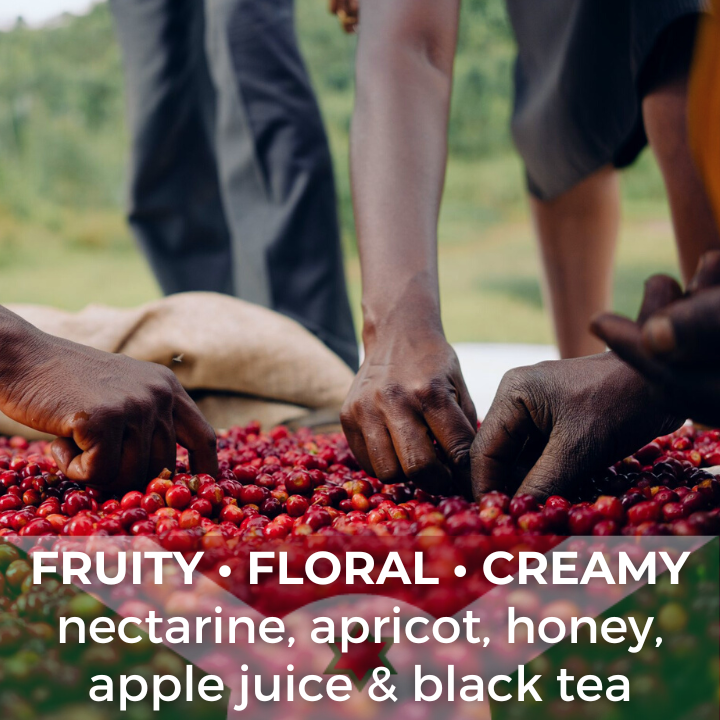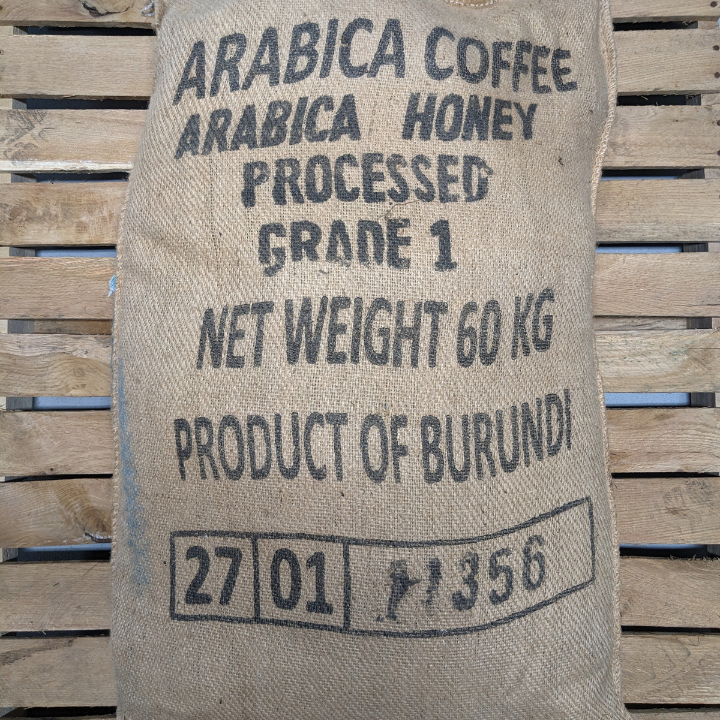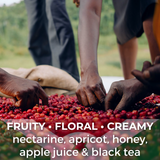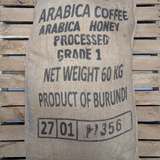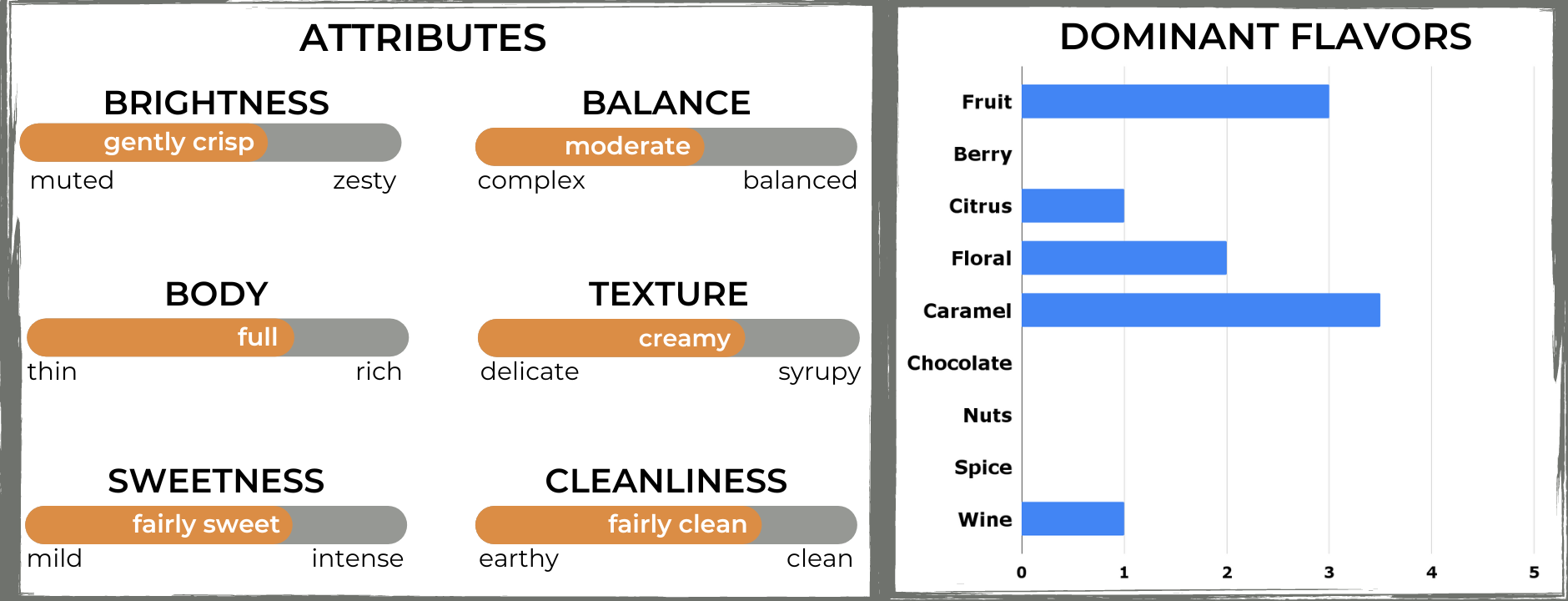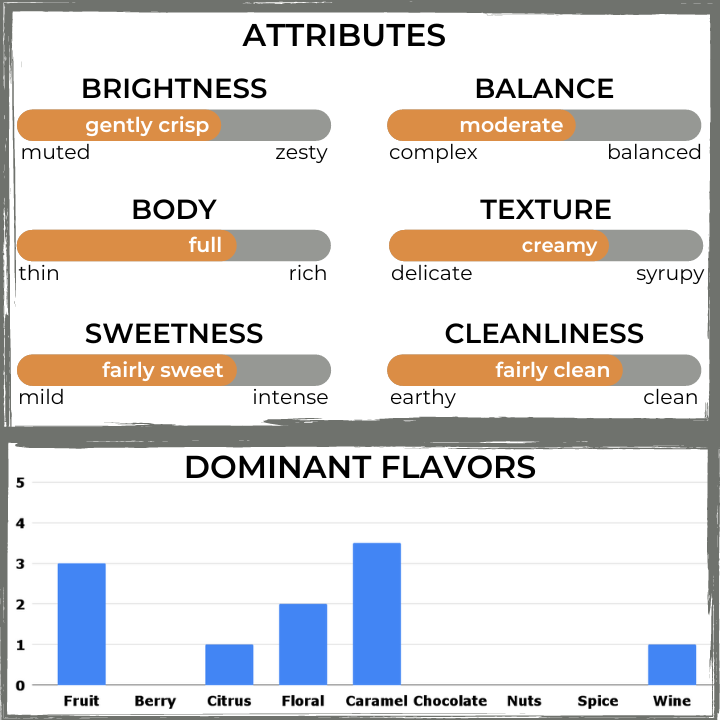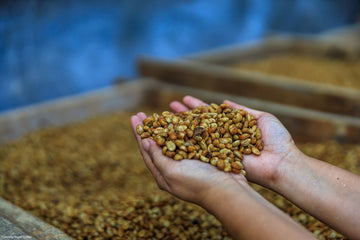Sold Out
Burundi Kayanza Giku Anaerobic Honey
Anaerobic processing is currently enjoying a wave of popularity, which is really exciting! Innovation in coffee processing has been stagnant for the vast majority of the history of…well, coffee. So the uptick in experimentation that’s happening at the producer level is a great sign that coffee still has lots of tricks up its sleeve. There are new flavors to discover and new cups to explore and WE LOVE IT. However, with that growing popularity comes pale imitations and sloppy processing looking to exploit that popularity all under the guise of increased profits by unscrupulous players in the industry. Now this isn’t meant as a rant, it’s just to let you know this is something we carefully screen for when sourcing because it’s important to us that we’re not just slapping labels on things in order to take advantage of trends!
Long Miles Coffee Project (LMCP) is exactly the sort of producer we look for when we want to feature experimental processing. They’ve been refining their anaerobic processing for years so they’ve got it dialed in. Furthermore, they are experts in micro lot management and quality control so they really check all the boxes! They invest heavily in their farmers despite the vast majority of them producing less than a bag of coffee each a year. That’s a level of care that’s rare in the coffee industry and it’s exactly why we felt great about choosing this lot when we went searching for an anaerobic honey to feature in our line up.
This local bourbon micro lot is gently bright and sweet with a surprisingly full body and a creamy texture. The sweetness in the cup is more honey and caramel focused. When it comes to the fruit in the cup, it’s difficult to describe since it’s not as in-your-face as a natural “fruit bomb” might be. Instead, it’s more of a gentle fruitiness like nectarine or apricot. We also noted fresh apple juice and a delightful assortment of florals ranging from honeysuckle to jasmine. When flash iced or cold brewed, it's got a real "southern sweet tea" vibe. Perfect for a hot summer day!
Reminder! This coffee is raw, you must roast it before brewing
Arrival Date: May 12, 2023 US Arrival: April 2023. Packed in Ecotact
Acidity & Brightness: Moderately bright and sweet
Balance & Finish: Moderate balance with a smooth, clean finish
Body & Texture: Full bodied and creamy
Flavors: Nectarine, apricot, apple juice, honey & assorted florals
Grade: Grade 1, Grown at 2200 masl
Processing: After cherry depulping, the fresh parchment is packed into Afri-tanks (large plastic drums normally used for storing potable water). The parchment is left to ferment for 36-72 hours. After fermentation, it is washed clean and graded by density. Afterwards, it is sun dried on raised beds (about 16-20 days)
Grower: Smallholder farmers of Giku hill organized around the Ninga Coffee Washing Station
Region: Kayanza Province, Burundi
Varieties: Local bourbon cultivars
Recommended Roast Range: City to Full City (Light to medium)
Start at City (light) or just into a rolling first crack if you’re looking to get as much florality as possible out of the cup. If you’re looking for more caramel and body in the cup, take it as dark as full medium or the very first snap of 2nd crack. We recommend keeping it to full medium or lighter to get the most from this coffee. This isn’t a particularly bright cup, but lighter roasts will make the most of the brightness that is present.
Royal Coffee - "Ninga Coffee Washing Station is the third and most recent processing site built by Long Miles Coffee Project (LMCP). In 2013 LMCP built Bukeye, its first processing station, in nearby Muramvya province. As Bukeye’s popularity grew, the incoming volume of cherry began to outstrip the capacity of the station; farmers from far away communities were traveling long distances, many more than 3 hours by foot, to deliver. In 2017 the LMCP group bought a piece of property on Ninga, one of the regional hills whose farmers were traveling the furthest to Bukeye. After multiple years of regulatory delays, the Ninga coffee washing station was finally opened to farmers and processed its first trial naturals. Today the Ninga station services farmers from 3 nearby hills: Ninga, Bumba, and Giku. It also produces washed, natural, honey, and anaerobically fermented coffees. This lot is an anaerobic honey process lot from participating farmers across Giku hill.
LMCP is a microlot business. All of their infrastructure, systems, employees, and marketing are designed to support large numbers of unique and fully traceable coffees. Doing so in Burundi is especially difficult because farms produce very little cherry and are scattered across broad landscapes. They are also numerous, requiring the successful coordination of hundreds of farmers and processing staff just to produce a single differentiated lot. Importantly, such an effort requires sustainable prices to support, so the coffee itself needs to be as delicious as possible. Fortunately LMCP excels at identifying landscapes and communities with potential, and investing heavily in farmer livelihood. With this formula they are easily producing many of the country’s best coffees each year.
LMCP organizes their farmer base by the hills they live on, designating delivery days of the week for each microregion. This is common practice for processors in Burundi, but unlike most, LMCP separates every hill and delivery day until processing is complete and a quality assessment has been made. Contributing farmers from Giku hill are registered partners with LMCP and receive not only highly competitive prices and post-harvest premiums for their cherry, but also farm-level trainings covering canopy and fertilizer development, pruning, harvesting for quality and integrated pest management. Farmer trainings are all provided by local “Coffee Scouts”, LMCP’s team of community-based trainers who serve as local instructors. The education and high prices combined have helped many of LMCP’s farmers renew their faith in coffee as a long-term livelihood. Long Miles works with a total of 5,500 farmers between their 3 washing stations, servicing 11 different hills.
“Anaerobic”, or low-oxygen styles of fermentation, have been carried out for the past 3 harvests by LMCP’s processing teams. For this lot, cherry from Giku farmers was floated and hand-sorted for maximum ripeness upon delivery to Ninga. Once the cherry was depulped the fresh, gooey parchment was packed into Afri-tanks, large plastic drums normally used for storing potable water. Once sealed, the parchment is left to ferment for 36-72 hours. After fermentation is complete the parchment is removed and treated to the same remaining steps as a standard fully-washed coffee at all of LMCP’s stations: it is washed clean and graded by density in long concrete channels, and finally moved to raised beds to dry in the sun, which typically takes 16-20 days.
The resulting cup profile is a subtle twist on an otherwise excellent fully washed process—think a slight syrupy enhancement to the body, and a slight transformation from stone fruit to tropical fruit flavors than one would expect from a high-quality washed coffee from Long Miles. If you’re already familiar with their washed coffees, the anaerobics are worth a try.”






